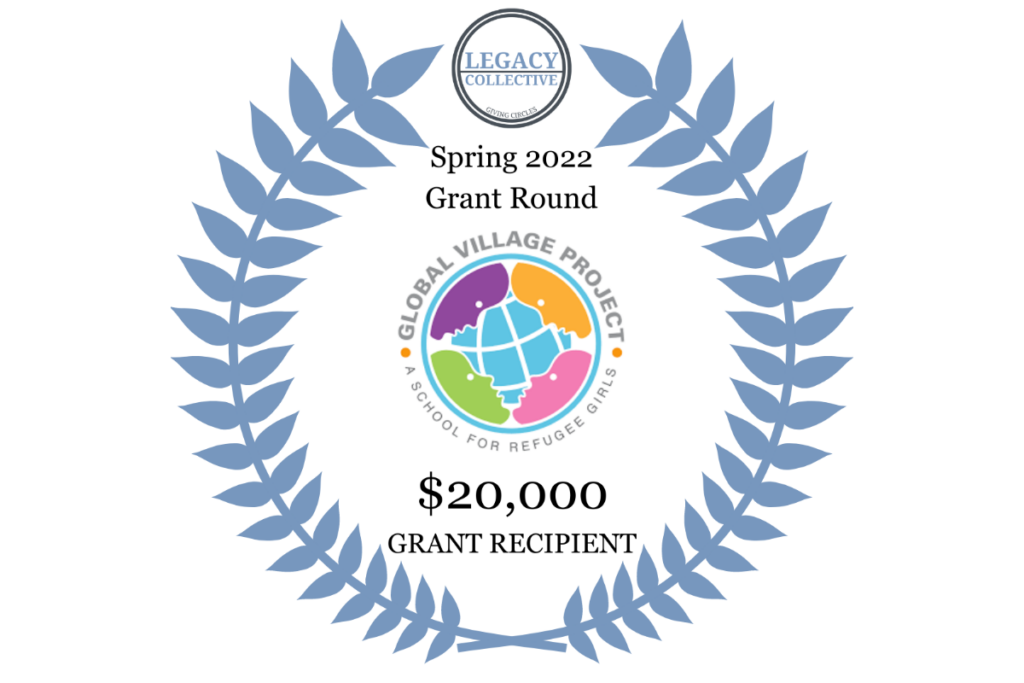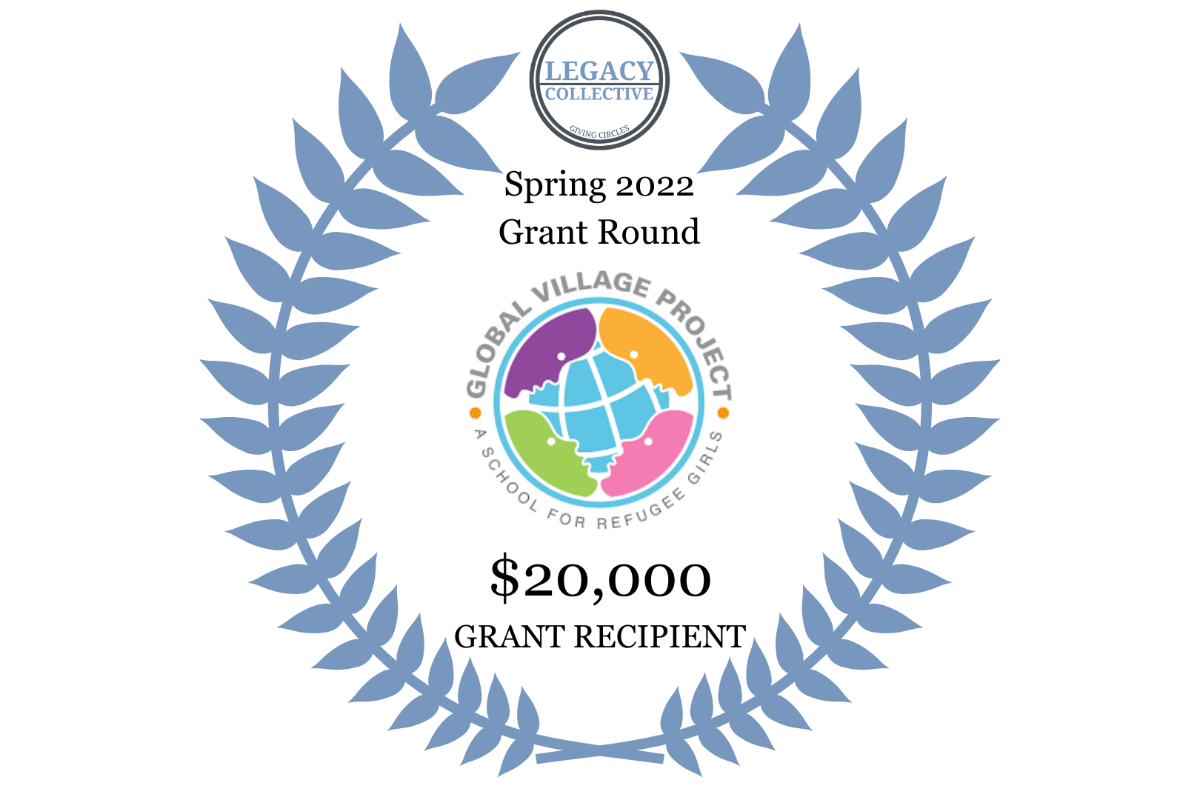
We are excited to announce our 5th 2022 Spring Grant Recipient!
Thanks to our generous Legacy Giving Circle donor community, Global Village Project is receiving a $20,000 grant towards their Mentoring & Alumni Engagement Program for Refugee Girls in Clarkston, GA!
Initiative Description: The Global Village Project (GVP) Mentoring & Alumni Engagement program, a longstanding pillar of our educational model, is now at a critical moment of growth and refinement. GVP is a special purpose middle school and was founded in 2009 by a group of educators as the only school in the country dedicated to addressing the educational needs of refugee girls. The mission was based on the realization that refugee girls arriving in the country are placed in school based on their ages and not their educational backgrounds. This approach often positioned them to fail. Our model begins by developing and strengthening their English language literacy, then bolstering it with a STEAM (Science, Technology, Engineering, Arts and Mathematics) and social & emotional learning and wellness curriculum which strengthens their readiness for high school. The fourth program pillar, pertinent for this application, matches each graduating student with a community mentor—typically a veteran organization volunteer—to forge a meaningful relationship and support network as each student prepares for and embarks upon her high school journey and beyond. To expand this program into its next phase of impact, we have identified the need for refined practices and processes in regard to recruitment, screening, training, and matching. Program development funds for these processes will ensure the continued and deepening success of the mentoring program, which greatly contributes to our legacy of alumni achievement both inside and outside the classroom.
Recruitment: An effective and diversified recruitment process is an important standard for a successful mentor program. GVP will engage in recruitment strategies that portray the benefits, practices, supports, and challenges of mentoring.
Screening: During a robust screening process, we will determine whether potential mentors have the time, commitment, and personal qualities to effectively meet the responsibilities of the role.
Training: Developing standardized training materials for mentors that focus on best practices, diversity, equity, and inclusion has been identified as an essential need. Training must be revised to focus on cross-cultural engagement, equity, and inclusion not only for students, but also for their families (family engagement).
Matching: A thorough, standardized process to match students with mentors based on mutual interest and input will be implemented.
Initiative Impact: As the GVP educational model—with Literacy and STEAM integration at its core—has taken shape and grown over these past twelve years, we are seeing the transformative power of a school curriculum that is designed to meet the needs of refugee young women. While the early goal of GVP was to serve as a bridge to success in high school, over the years we have seen our students achieve far and above that threshold. GVP alumnae aren’t just ‘getting by’ academically; they thrive in the classroom. They aren’t just making it to high school; they are excelling in their studies, taking on leadership roles within their schools and communities, winning scholarships and awards, graduating with honors, going to college, and starting their careers. The best possible outcome from the activities described above is that removing these barriers allows our students to focus on catching up academically during their time at GVP and continuing on to succeed in and graduate from high school. This is our ultimate measure for student success. Because all GVP programs are designed to foster accelerated academic achievement, we also measure success in terms of our students’ grade level progression in core academic subjects.
To date, we have served more than 300 students, and more than 90% of those who have completed the GVP program are either currently enrolled in high school, have graduated from high school, and/or are enrolled in college. In a typical year, the average GVP student gains two grade levels in reading, with some making gains up to 3.5 grade levels; in math, the average student gains two grade levels, with some gaining up to four grade levels. Beyond test scores, they participate in rich opportunities for personal and academic growth that include general music and introductory instrument lessons; weekly group counseling sessions; guided study time and homework support from hundreds of volunteers; field and experiential learning trips that complement the STEAM curriculum; and more.
Related specifically to the Mentoring program, objectives and data measures could include:
● Increased frequency of alumni and mentor events and programs.
● Increased student and alumni awareness of their personal strengths and career goals.
● Conduct surveys of student and alumni career awareness and high school readiness.
● Enhance alumni engagement through the establishment of a database for tacking.
Initiative Sustainability: Mentoring & Alumni Engagement, as described above, is one of GVP’s four program pillars and has been in operation since the early days of our school. Once implemented, the refined processes in regard to recruitment, screening, training, and matching, will become core practices of the Mentoring program. From a funding perspective, each of the four program pillars are allocated each year with a portion of our operating budget, as needed, to sustain the program. With program development funds, we are able to implement key expansions and improvements that require funding outside of the typical allocation. Revenue diversification is central to GVP’s funding sustainability strategy. Despite challenges presented by the pandemic, GVP continues to be in a strong financial position. Foundations and institutions provide multi-year grant funding to sustain key programs. Events and revenue from private individuals supplement operations. Limited funding from federal, state and local government supports key programs for serving our students and their families, who are among the most vulnerable during these times of economic hardship. Our mission and efforts to continue to support them is resonating with new and existing funders.
